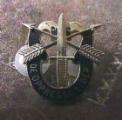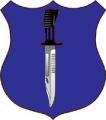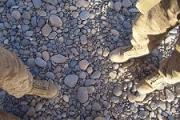Originally Posted by JMA:
Which Red Rat replied to:
JMA is right the Oman campaign (1970-1976)

, mainly in the border province, Dhofar, with then South Yemen, involved a lot of "outsiders" and it was a coalition effort (

RR is wrong). I am not familiar with how the Omani government, the Sultan, asserted national control or oversight, but present on the ground were: UK SAS, a large brigade-sized Imperial Iranian force, a Jordanian contingent, mercenary Baluchis from Pakistan made up a good part of the Omani Army and in the air were the RAF, Iranian AF and an Omani AF with a good number of Brits and Rhodesians

on contracts.
From 1958-1978 a UK officer was the Omani Armed Forces No.2, a Brigadier Colin Maxwell and a UK loan officer was the Dhofar Brigadier, John Akehurst (who wrote a book 'We Won the War:The campaign in Oman 1965-1975). 'SAS Operation Oman' by Tony Jeapes is another book.



 , mainly in the border province, Dhofar, with then South Yemen, involved a lot of "outsiders" and it was a coalition effort (
, mainly in the border province, Dhofar, with then South Yemen, involved a lot of "outsiders" and it was a coalition effort ( on contracts.
on contracts.










Bookmarks